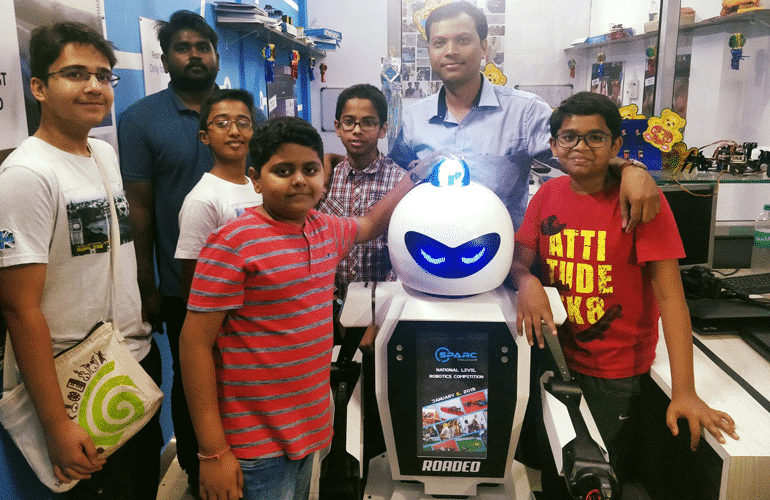Intelligently designed by six children, this city is in for a smart surprise. Soon, Pune will become the first city in India to have a pilot robot, which will be a kind of quasi-traffic policeman that will display road rules and direct traffic in a limited role to help out the cops.

The tech will be launched on January 15, 2019, in a city that takes very strict actions against traffic violations. This will be a wow factor for the commuters as there will be an automatic rise in awareness when it comes to complying with the traffic rules.
Recently, for the safety of commuters, mandatory helmet drive was launched by the traffic police department and to maintain smooth traffic flow and spread awareness about the task at hand.
If Roadeo turns out to be properly functional, similar prototypes will be adopted in the streets to control traffic in fashion. Further, it will reduce the burden of the cops who hardly get time to relax while monitoring the traffic on roads.
There is a 16-inch LED display on the robot, which will show a ticker of traffic rules and other vital information – such as ‘Wear a helmet’, ‘Do not jump the signal’ and other rules. The advanced technology used, lets Roadeo move its hands and it can move and show stop signs to vehicles.
Further, the robot is infused with a siren, skid-steering wheels and obstacle-detection sensors.
The concept is the brainchild of SP Robotics Maker Lab, a city-based laboratory, which trains people to learn about robotics and build tech on their own.
While talking to Pune Mirror, head at SP Robotics Maker Lab, Sandeep Gautam, said, “The robot was built over a couple of months last year by the children, who are from Classes VII and VIII. They worked well with a team in Chennai. Roadeo is a multi-functional robot that has been gifted by our team to the traffic department. We will make more of these if the pilot project works well and there is a demand witnessed.”
Six children from the city who made this possible are— Aadi Kanchankar, Parth Kulkarni, Rachit Jain, Shourya Singh, Shruten Pande, and Vinayak Krishna. The idea was to help out the traffic department and reduce their pressure as they are already facing a shortage of staffs.

